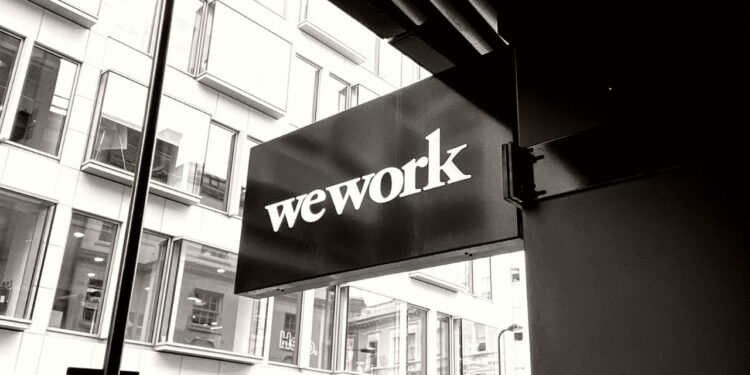WeWork’s journey through financial restructuring has hit another significant roadblock.
According to a report published by The Wall Street Journal, the struggling coworking giant’s junior creditors committee is seeking court approval to sue SoftBank, WeWork’s largest shareholder, amidst allegations of financial maneuvering ahead of WeWork’s bankruptcy filing.
The committee accuses SoftBank and a coalition of creditors, who hold 62% of WeWork’s unsecured notes, of orchestrating a debt restructuring in May 2023. This move was allegedly designed to minimize their losses and improve their standing in WeWork’s financial hierarchy — all while being fully aware of the company’s impending bankruptcy.
According to the Wall Street Journal, this restructuring effort led to WeWork’s unsecured creditors, including landlords and note holders, being demoted beneath $2.4 billion in new secured debt.
Prior to the recent court filing, a coalition of WeWork noteholders filed a motion in the bankruptcy court in New Jersey to appoint an official examiner for a more thorough investigation into the company’s Chapter 11 proceedings. The call for the appointment of an examiner also stems from worries that the bankruptcy proceedings are not unfolding as expected — primarily due to WeWork’s prearranged plan with SoftBank, which the group of noteholders are claiming unfairly prioritizes SoftBank’s interests above others.
WeWork, which declared bankruptcy in November 2023, has been focusing on renegotiating leases in key markets and emerging from bankruptcy. According to a report published by Bloomberg Law, the recent filing by junior creditors seeks court permission for the committee to pursue claims against SoftBank, and the involved creditors, to potentially recover funds for those affected by the restructuring.
SoftBank has yet to respond to the allegations.
The court filings not only shed light on the complexities of corporate finance in the rapidly changing world of work but also shows another critical moment for WeWork in its chapter 11 proceedings. As the company continues to navigate through its financial woes, the outcome of this legal challenge could significantly influence its ability to recover.
















